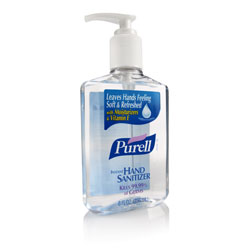Kids and alcohol
Parents may not want to think about it but the reality is that many kids and teens try alcohol during their high school and college years and this is way before it is legal for them to drink. Research shows that around 80% of high school kids have tried alcohol. Perfect example is to ask yourself, when did you have your first taste of alcohol? Experimentation among kids and teens is common but it isn’t always safe or legal.
Kids and alcohol: The effects
Alcohol interferes with a person’s perception of reality and their ability to make good decisions. This is especially dangerous for kids and teens that have less problem-solving, coping mechanisms, and decision-making experiences.
Short term effects of kids and alcohol are:
- Distorted vision, hearing and coordination
- Altered perceptions and emotions
- Impaired judgment which can lead to accidents such as broken bones, drowning and other risky behaviors such as unsafe sex and drug use
- Bad breath
- Hangovers
Long-term effects include:
- Cirrhosis and cancer of the liver
- Loss of appetite
- Vitamin deficiencies
- Stomach problems
- Heart and central nervous system damage
- High risk of overdosing
- Physical dependence
Kids and alcohol is a dangerous mix. During times of transition which most kids are going through, during the onset of puberty or a parent’s divorce can lead to alcohol use. So it is important that kids are taught that even when life is upsetting or stressful, drinking alcohol can make the bad even worse. They can be taught healthier and better coping mechanisms.
Kids who have problems with self-control and have low self-esteem are more likely to abuse alcohol. They feel as if they can’t handle their problems and frustrations without using something to make them feel better. This is also where talking to kids about healthier coping mechanisms would be a good way to cut back kids drinking alcohol.
Also, kids without a sense of connectedness with their families or who feel different in some way, either in appearance, economic circumstances etc. may be at risk. Those kids who have trouble believing in themselves desperately need the love and support of parents and other family members.
Believe it or not the most common reason that kids don’t use alcohol or other drugs is because they don’t want to harm the relationship between themselves and the adults in their life who care about them.
Kids and alcohol: Signs of drinking
Regardless of trying to do the right thing there is a chance a kid may still end up drinking. Here are the warning signs that a kid has been drinking:
- The odor of alcohol
- Sudden change in mood or attitude
- Change in attendance or performance at school
- Loss of interest in school, sports, or other activities
- Discipline problems at school
- Withdrawal from family and friends
- Secrecy
- Association with a new group of friends and reluctance to introduce them to you
- Alcohol disappearing from your home
- Depression and developmental difficulties
Here are some great ways to help kids with alcohol:
- Be a good role model. Watch how you drink and how it may influence your kids with alcohol.
- Educate yourself about alcohol so you can educate kids better
- Try to be conscious of how you can help build a kid’s self-esteem.
- Teach kid’s to manage stress in healthy ways such as seeking help from a trusted adult or engaging in productive activities.
Sources:
http://www.talkaboutalcohol.com/uploads/parentsguide.pdf



